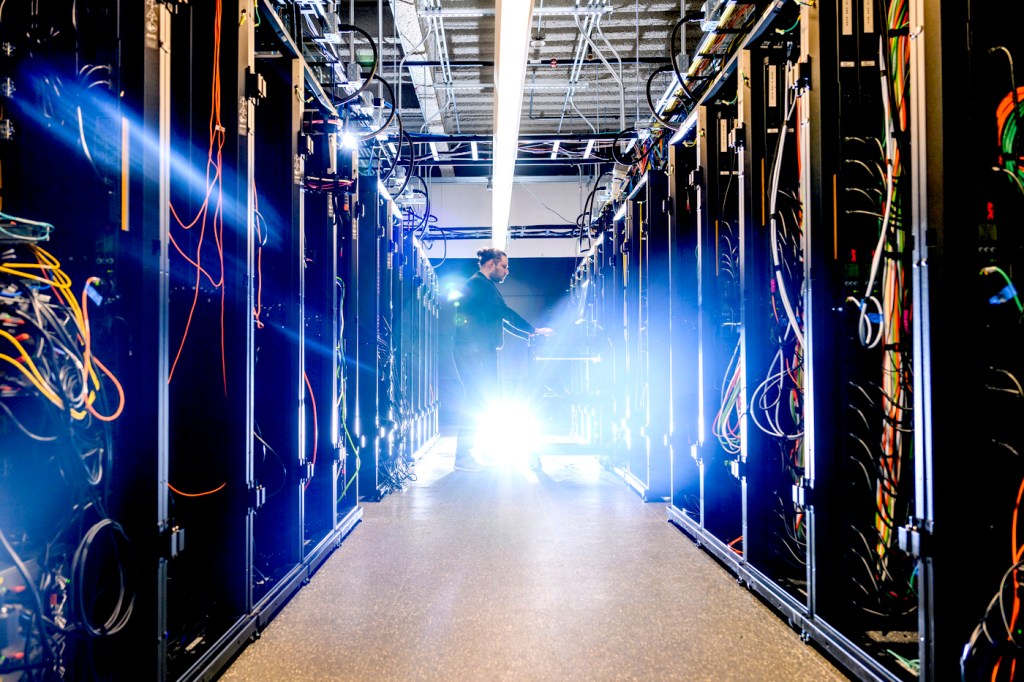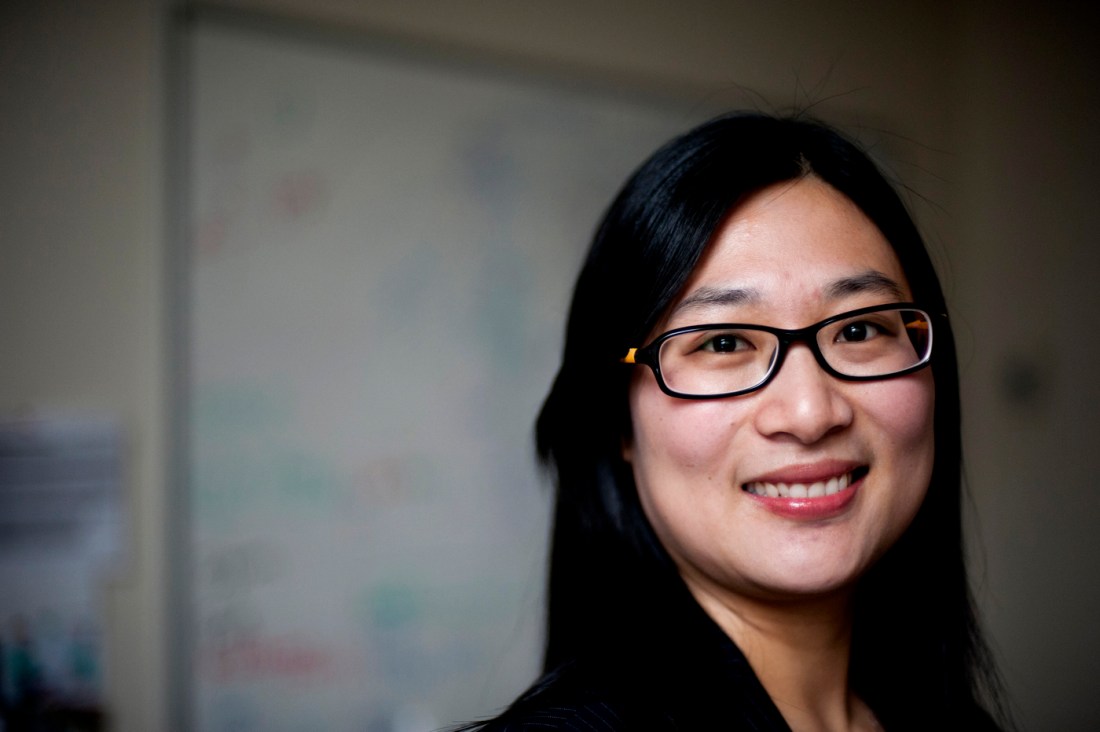Northeastern engineer is using AI and cloud computing to empower educational researchers
NSF grant will help Ningfang Mi establish a comprehensive curriculum that incorporates AI, machine learning and cloud computing into educational research training programs.

Northeastern University professor Ningfang Mi says she can help educational researchers unlock new insights into education policies, teaching strategies and student outcomes by utilizing AI and advanced cyberinfrastructure systems in the cloud.
The first time Mi experienced the educational analysis field, she says, she was surprised to learn that her colleagues in educational research didn’t know about advanced technologies and resources available to them to work with big data. There was a big gap between what educators and educational researchers needed and the tools they had access to or knew how to utilize, she says.
“There’s a very high potential we can help them improve their educational research and get more meaningful insights from their rich datasets,” Mi says.
For years, Mi, a professor of electrical and computer engineering, has been focusing her research on cloud computing — computing services such as servers, storage, databases and networking delivered over the internet to users who don’t have access or don’t want to maintain these IT resources themselves.

Typically, cloud computing, along with technologies like machine learning and artificial intelligence, Mi says, has been used mainly by computer science and engineering researchers, leaving fields like the social sciences behind.
“I want to encourage the development and usage of cyberinfrastructure in other domains and disciplines,” Mi says, “and particularly, in the educational domain.”
To boost adoption of advanced technologies in education, Mi has teamed up with computer science experts from different universities and an educational researcher. Their main goal is to prepare future workers in education analytics to use advanced cyberinfrastructure systems in the cloud.
“This is not the classic computer-related research,” Mi says. “This is bringing together computer engineering and education research to provide training and resources.”
In the long term, the interdisciplinary team of experts aims to establish a comprehensive curriculum that incorporates AI, machine learning and cloud computing into educational research training programs. This will not only enhance the skills of current and future researchers, Mi says, but also ensure that education policies and practices are informed by the latest advancements in technology and data science.
Featured Posts
Mi and her collaborators have received a National Science Foundation grant for a four-year project titled “AI4EDU: Cloud Infrastructure-Enabled Training for AI in Educational Research and Assessment.”
AI has become a focal point in educational policy discussions, Mi says, both on federal and state levels. Educational administrators and classroom teachers are being urged to adopt AI-driven tools and techniques, which can significantly enhance their ability to analyze large, complex datasets.
The researchers believe this interest in AI within the education research community will continue to increase in the coming years, driven by data automatically generated by e-learning systems, online courses and tutoring systems. When combined with AI, this data can unlock new insights into education policies, teaching strategies and student outcomes.
The project will first develop a platform with innovative training modules and materials on the use of cloud computing resources for AI analytics that can be used by education researchers, school administrators, policymakers and even prekindergarten through Grade 12 teachers in North Carolina. Later, the experts plan to add to the platform sample projects with accompanying datasets for real-world hands-on training, data analysis and cloud management tools and a depository where the community can collect and share machine learning programs, datasets and code tailored for a variety of educational research tasks.
“At the same time, our student researchers can extend their research from image and biomedical data processing with machine learning to educational research,” Mi says.
Some of the research questions that AI in education can help answer, Mi says, include the effects of education policies on teacher effectiveness, student academic achievement and psychological well-being; relationships between school policy, teacher quality, family resources and student academic achievement; and student developmental stages and the appropriate match between teaching strategies and learning styles.
The platform will be open-access, Mi says, meaning educational students and researchers from institutions with limited resources will still be able to benefit from its offerings.
Mi and her collaborators are striving to make a lasting impact on education.
“This project can lead us to other kinds of multidisciplinary collaboration in the future,” Mi says.










